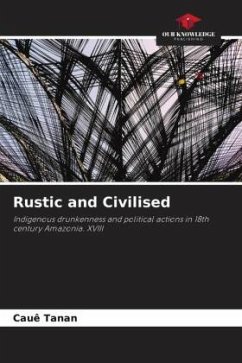Objective. To analyse the reasons that led the Portuguese colonial administration to condemn indigenous drunkenness in the 18th century by means of indigenist policies contained in the Directory of 1757. Methodology. Qualitative, documentary research, analysing three records from the 1750s - two communications and the travel diary of Mendonça Furtado - from which considerations are made about the insertion of articles 13 and 14 of the aforementioned law. In addition, ethnographic and archaeological information on the alcoholic consumption of the indigenous peoples of the upper Rio Negro is used. Results. It was found that the effects of the cohibition of drunkenness seem to be directed against the festive activities of the natives.
Bitte wählen Sie Ihr Anliegen aus.
Rechnungen
Retourenschein anfordern
Bestellstatus
Storno





![Homely Musings, by a Rustic Maiden [-Stevenson] Homely Musings, by a Rustic Maiden [-Stevenson]](https://bilder.buecher.de/produkte/71/71636/71636746m.jpg)


